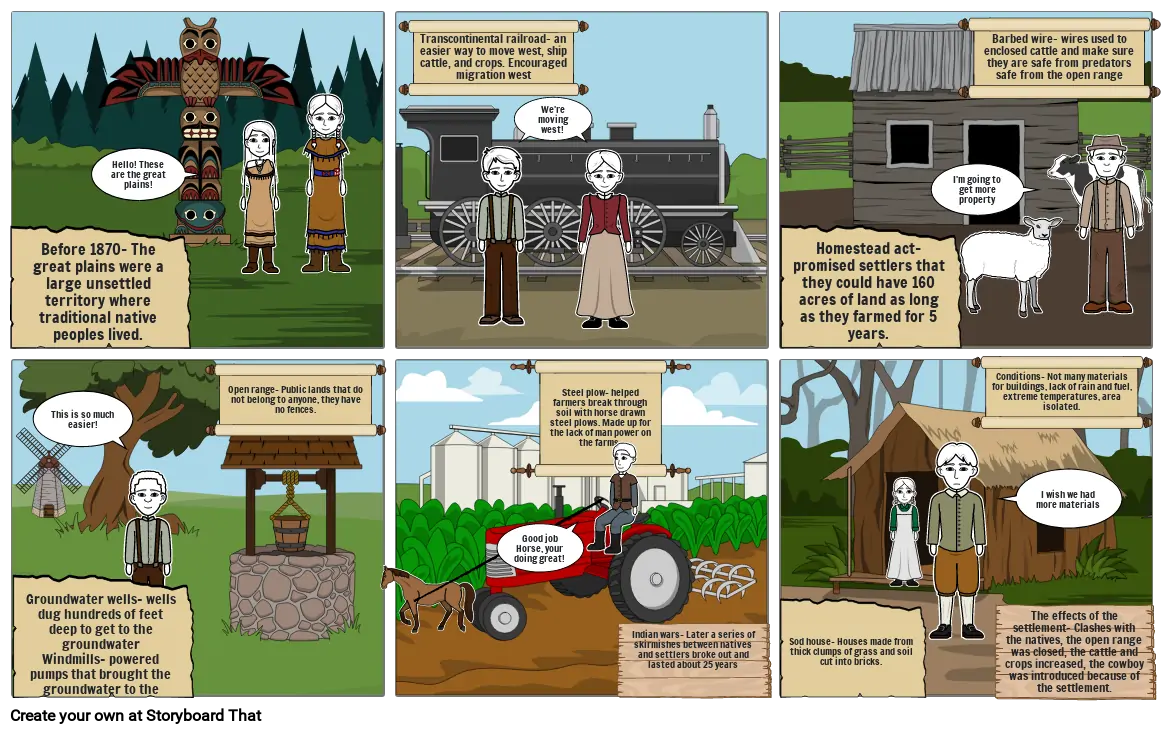Unknown Story

Storyboard Text
- Before 1870- The great plains were a large unsettled territory where traditional native peoples lived.
- Hello! These are the great plains!
- Transcontinental railroad- an easier way to move west, ship cattle, and crops. Encouraged migration west
- We're moving west!
- Homestead act- promised settlers that they could have 160 acres of land as long as they farmed for 5 years.
- Barbed wire- wires used to enclosed cattle and make sure they are safe from predators safe from the open range
- I'm going to get more property
- This is so much easier!
- Open range- Public lands that do not belong to anyone, they have no fences.
- Good job Horse, your doing great!
- Steel plow- helped farmers break through soil with horse drawn steel plows. Made up for the lack of man power on the farms.
- Indian wars- Later a series of skirmishes between natives and settlers broke out and lasted about 25 years
- Conditions- Not many materials for buildings, lack of rain and fuel, extreme temperatures, area isolated.
- The effects of the settlement- Clashes with the natives, the open range was closed, the cattle and crops increased, the cowboy was introduced because of the settlement.
- I wish we had more materials
- Groundwater wells- wells dug hundreds of feet deep to get to the groundwaterWindmills- powered pumps that brought the groundwater to the surface
- Sod house- Houses made from thick clumps of grass and soil cut into bricks.
Over 30 Million Storyboards Created
No Downloads, No Credit Card, and No Login Needed to Try!
